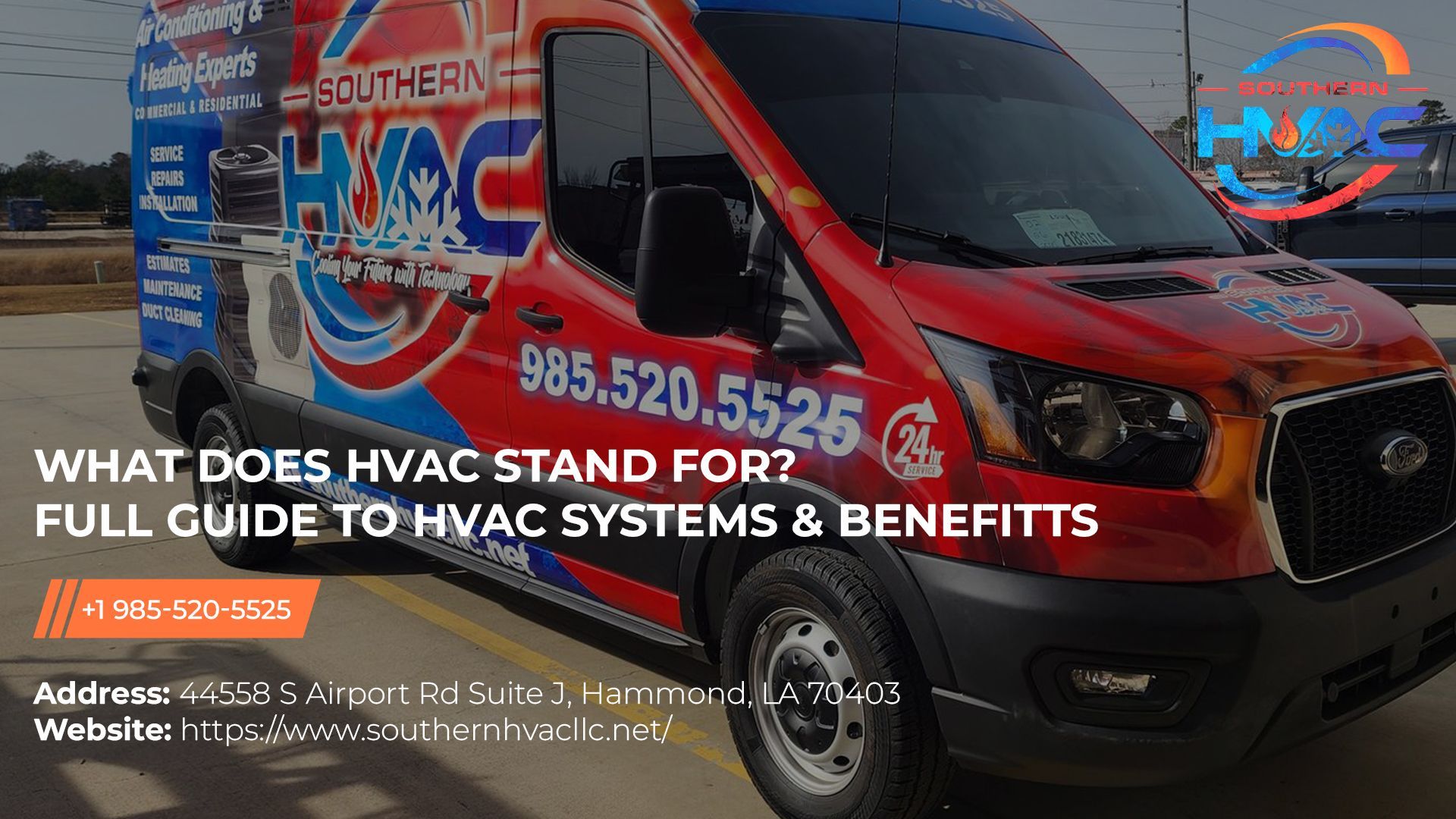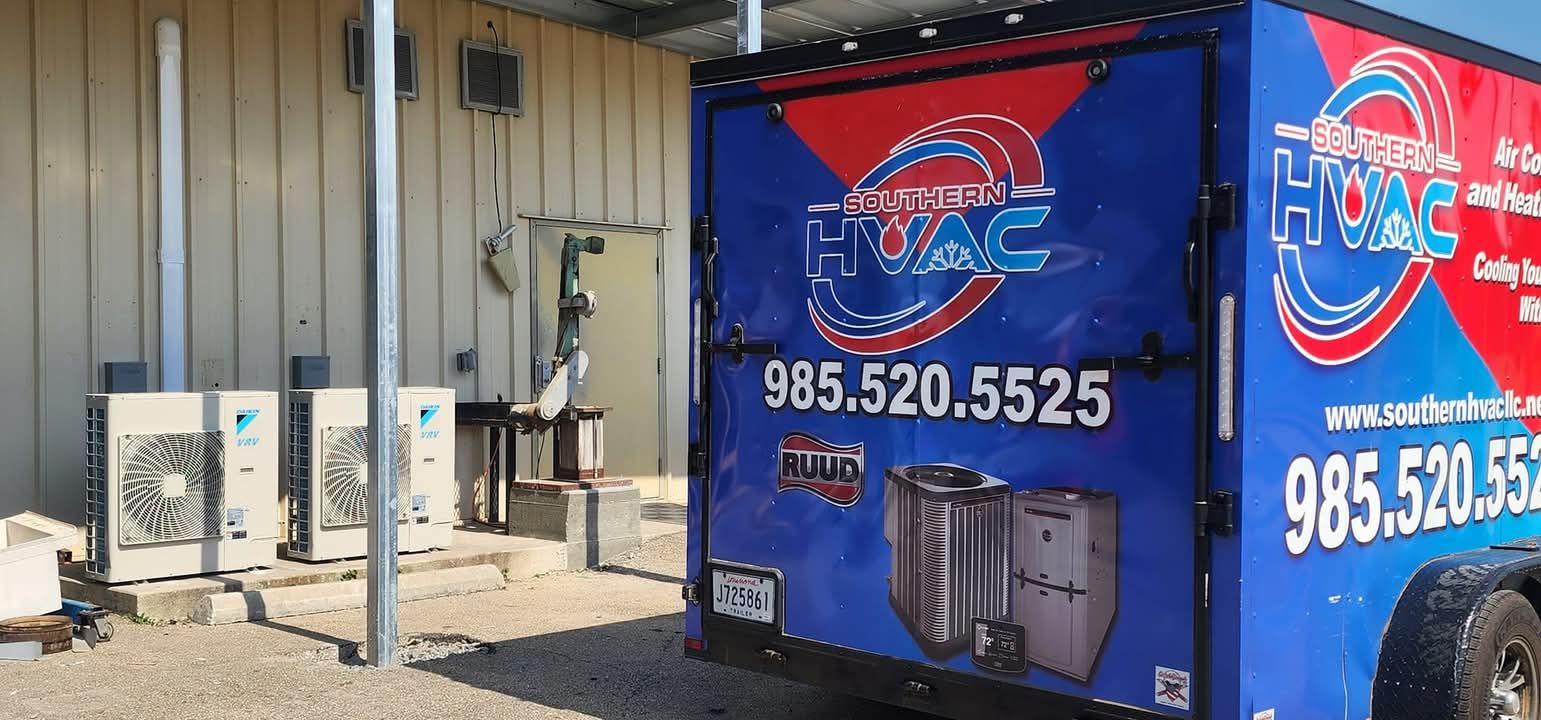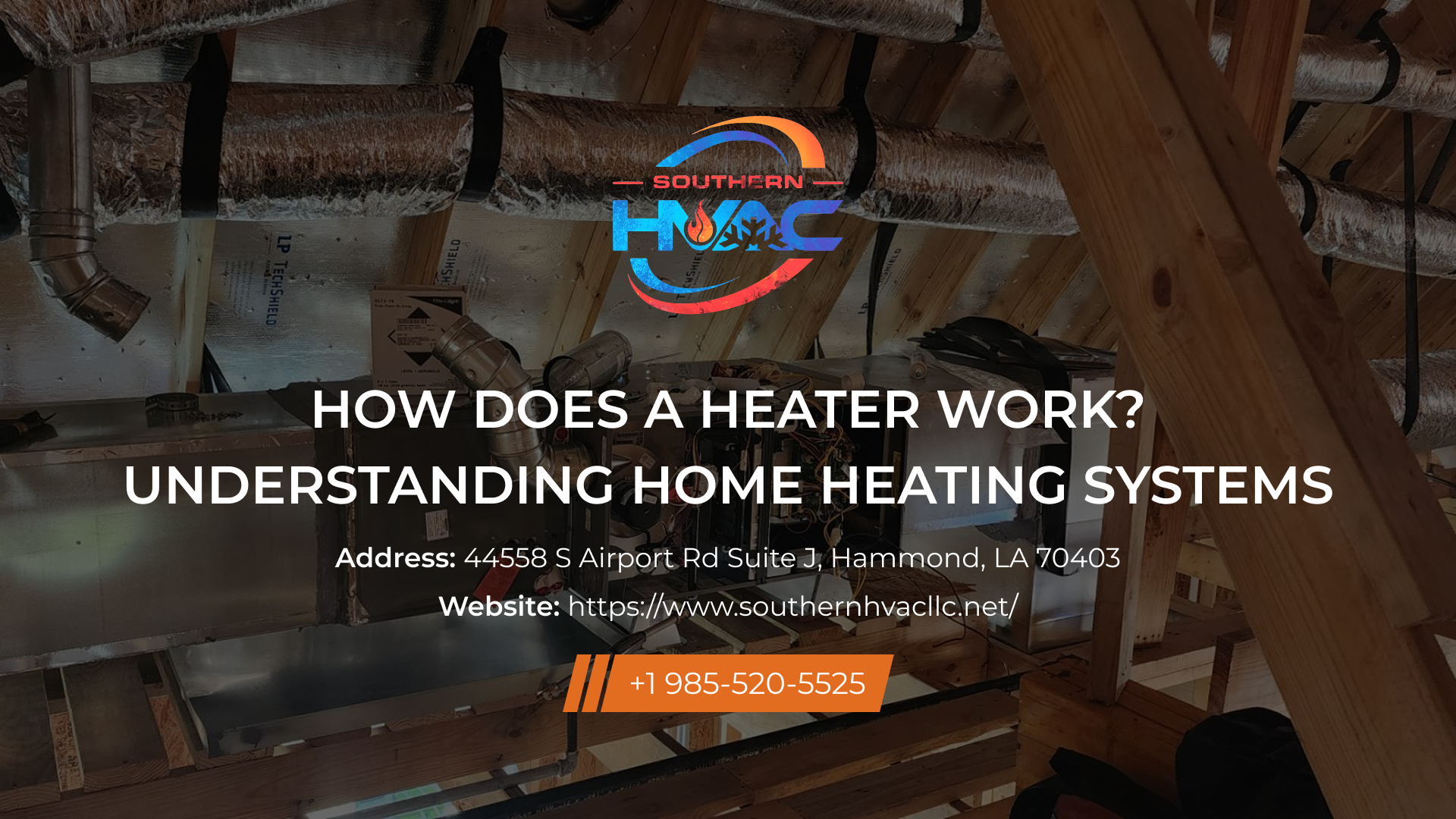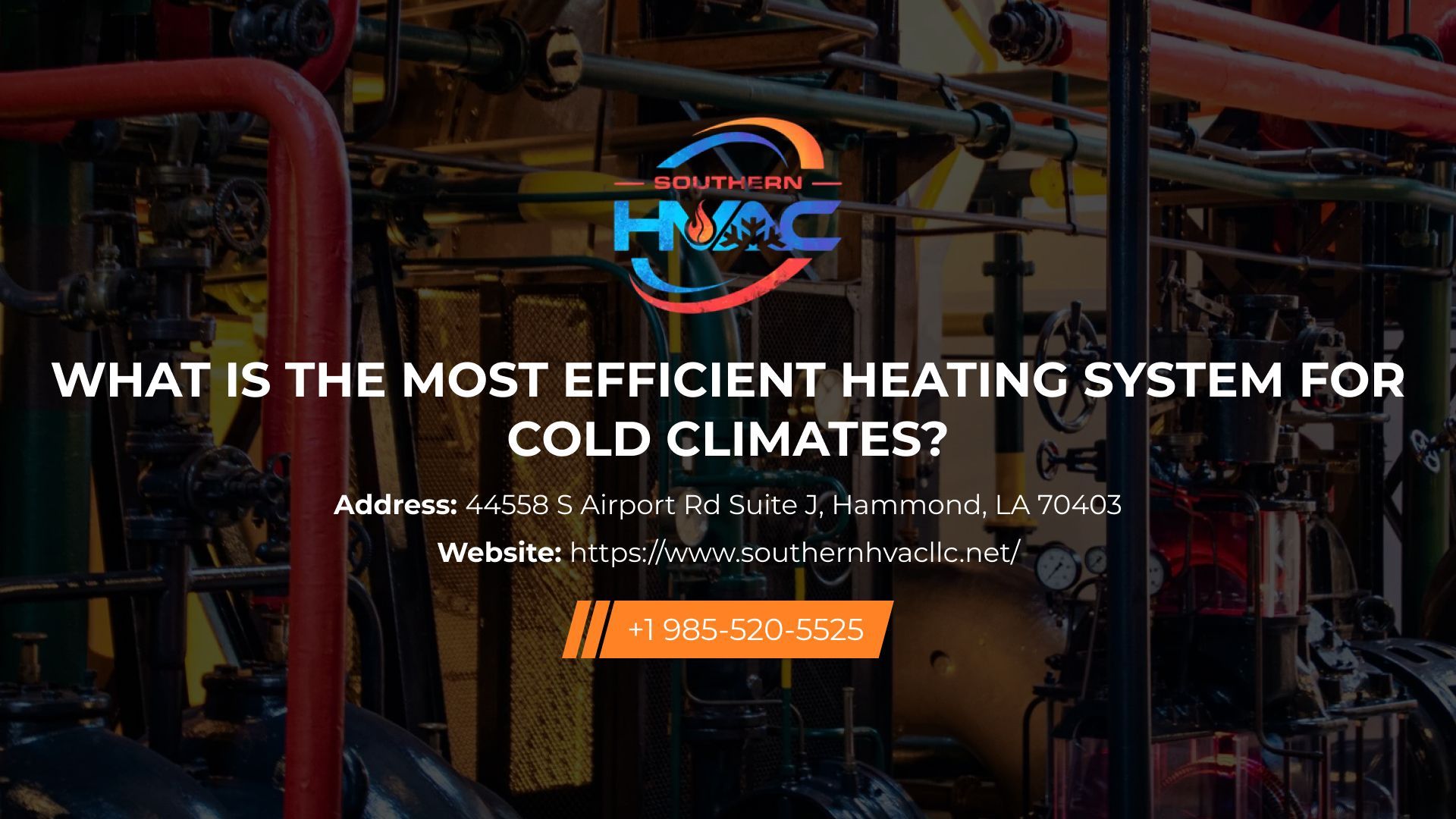What Does HVAC Stand For? Full Guide to HVAC Systems & Benefits

If you have wondered, "What does HVAC stand for?" you are not alone. HVAC is an integrated system for maintaining indoor air quality, comfort, and temperature control in residential and commercial spaces. At Southern HVAC, our certified technicians are here to guide you through everything you need to know about HVAC services with the following article.
What Does HVAC Stand For?
HVAC stands for Heating, Ventilation, and Air Conditioning, a system that regulates temperature, airflow, and air quality. It is implemented in residential as well as commercial environments to regulate the air. Individuals can make informed decisions about heating and climate control options by knowing “what is HVAC”.
Benefits Of HVAC Systems
HVAC systems work by heating, cooling, ventilating, and filtering the air to maintain indoor comfort. Key components such as thermostats, heat exchangers, and air filters help control the temperature and purity of the air. Failing to replace clogged air filters is one example of poor maintenance that can lower efficiency and raise energy expenses.

Components Of The HVAC System
Air Conditioner
Central air conditioners are a core component of your air conditioning HVAC system. This system uses refrigerant, evaporator coils, and condenser coils to release heat. Air filter cleaning or replacement delivers strong, steady cooling and healthier HVAC services.
Heat Pump
Our HVAC heat pump systems offer cooling and heating using advanced energy-saving technology. The systems transfer, rather than generate, heat, so they can be utilized during all seasons.
Furnace
By burning gas, oil, or electricity, a furnace system heats air and forces it with a blower motor. This system is equipped with a heat exchanger and is the optimal solution for cold climates.
Boilers
Boiler systems use radiant heat, delivered through hot water or steam. They are quieter and more uniform in heating than forced-air heating systems. Our heating services incorporate the proper sizing for effective heat solutions.
Air Handler
Air handler sends conditioned air throughout your home with a blower motor and sometimes a filter for the air. It typically exists as part of HVAC systems like heat pumps.
Thermostat
A thermostat controls temperature settings, improves comfort, and reduces energy use. Thermostat installation is a simple step toward HVAC efficiency.
Humidifier & Dehumidifier
These systems offer proper humidity, one of our indoor air quality solutions. Humidifying adds moisture during dry spells, and dehumidifying removes excess moisture to prevent mold and support comfort.
Ductless Mini-Splits
Ductless mini-split systems offer zoned HVAC without ductwork. They are great for add-ons and areas that need flexible ductless heating and cooling. These systems are included in Southern HVAC ductless systems services.
Ventilation Systems
Ventilation systems optimize fresh air by circulating and removing stale, contaminated air. They are composed of ERV systems and mechanical fans. Effective ventilation improves health and improves your home's indoor air quality.
Air Purifiers
Air cleansing systems clean particles using HEPA filters or UV air purifiers. They are required for allergy patients or individuals with asthma. Cleansing the air improves comfort and decreases contaminants.
Types Of HVAC Systems
- Central HVAC Systems: Best for homes with existing ductwork, providing consistent temperature control throughout the entire home.
- Ductless Mini-Split Systems: Ideal for zoning and regions where there are no ducts.
- Geothermal HVAC Systems: An eco-friendly solution using ground-source energy.
- Heat Pump Systems: Provide both heating and cooling with efficiency.
- Hybrid Systems: Blend several technologies to achieve maximum flexibility.
What HVAC System Is Right For Me?
Understand the definition of HVAC systems to consider your space, climate, and needs when selecting it. Choose the right HVAC system for your needs in terms of local climate control, zoning, and energy-efficient HVAC options. At Southern HVAC, we offer consulting to help you find the system that best fits your needs.
Book Your Professional HVAC Installer Near Me
Contact Southern HVAC today to schedule your consultation! Our certified HVAC contractors provide reliable, high-quality installation tailored to your home or business needs.

FAQs
How do I install an air filter correctly?
Look for the filter frame notch and labeling panel arrow; these show the correct airflow direction for your HVAC filter. Always align the filter properly to prevent air leaks.
How often should I check or replace my filter?
Check your filter monthly and replace it every 30–90 days. Monitoring your filter helps catch issues early.
What’s the difference between a HEPA and a basic filter?
A HEPA filter removes 99.97% of tiny particles, while basic filters capture only larger dust. HEPA is best for sensitive environments.
Can I reuse or wash my air filter?
No, only washable filters can be reused, so please check the air filter label before cleaning. Most standard filters need to be replaced, not cleaned.
What happens if I forget to change the filter?
Your system may overheat, your air will carry more airborne particles, and energy bills will climb. A dirty HVAC system also wears out faster.








